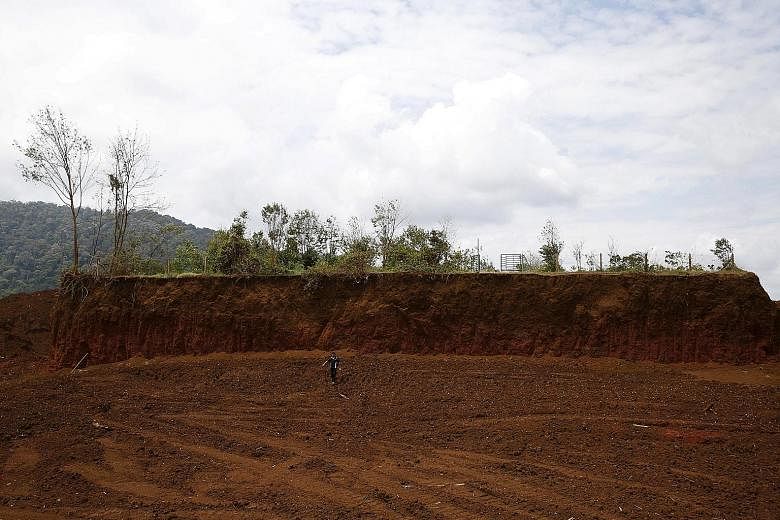KUANTAN • Malaysian durian farmers are calling for tighter regulations on mining, which they say is destroying arable land and tainting the water they need to churn out their yellow, spiky-shelled crop.
Farmers in major growing state Pahang plan to spend nearly two weeks marching over 250km to Parliament in Kuala Lumpur to protest against the impact of bauxite mining on durian output.
Parts of Pahang have been transformed over the last few years by a mining boom to feed China's appetite for bauxite, a key ingredient of aluminium. There has been a public outcry over environmental damage, however, with mining blamed for polluting land and turning waters red near the state capital Kuantan.
That has piled pressure on the government, prompting it to impose a three-month ban on bauxite mining in early January, but durian growers such as Mr Che Long Che Ali fear what will happen when the moratorium is lifted on April 15.
"We will march to submit a memorandum to Parliament... I'm doing this for myself and all future generations to fight for our environment," he said, adding that farmers wanted tougher regulations on bauxite mining or even a permanent ban.
"My durian trees didn't fruit last year. Our rivers and the air we breathe are polluted. People have fallen sick," Mr Che Long said.
The march is expected to begin around the middle of next month.
After Thailand, Malaysia is the world's No. 2 producer of durian. China is its key market.
Malaysia's durian industry is not huge - government figures show 2014 frozen shipments to China were worth just over US$1.2 million (S$1.7 million) - but the crop is a source of national pride.
Farmers blame ore dust for disrupting pollination, while environmentalists note that the habitats of natural pollinators birds, bees and bats are destroyed when land is cleared for mining.
The Malaysian Nature Society also said that land used for mining would likely become infertile due to heavy-metal contamination, meaning rehabilitation for agriculture would be long and expensive.
Bauxite mining in Kuantan boomed over the last two years as China shifted its sourcing of the material to Malaysia after former top supplier Indonesia banned exports.
Mining industry officials expect activity to resume after the ban.
"We expect to recommence mining, and we hope for adequate regulations to be in place to suppress any further impediment to the environment, especially from illegal mining," said Mr Keith Vaz, president of the Malaysian Mining Club.
REUTERS

